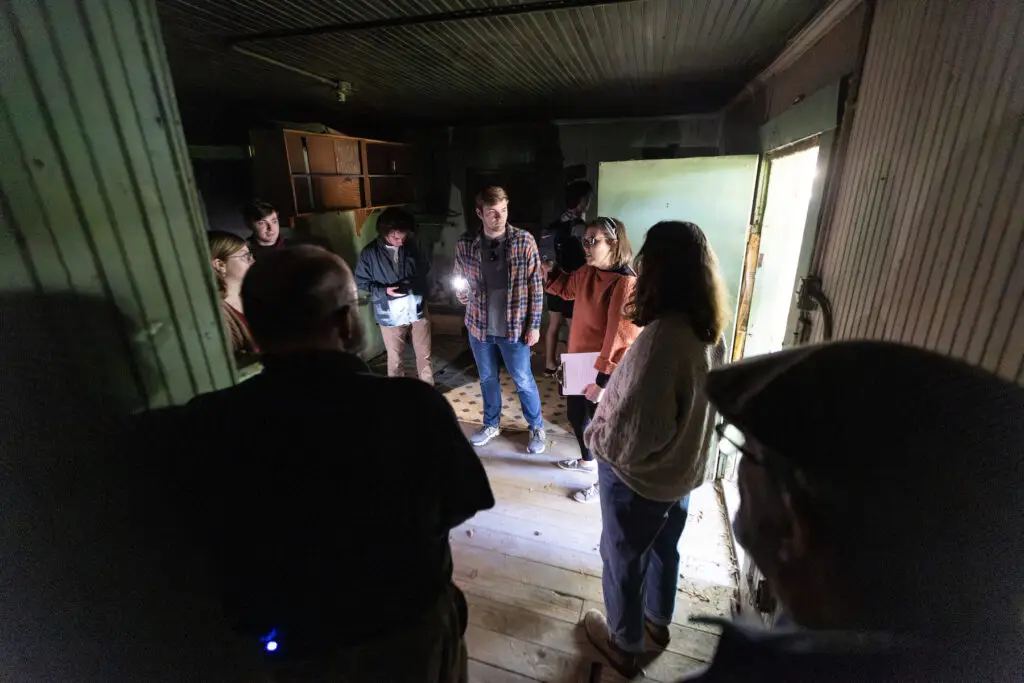A group of Anderson University students were enrolled this past fall in “Memory and Tragedy in United States History,” a course unique from other history classes in that it focuses on the meaning society has given historical events and how that meaning has changed over time.
The cabins were part of a field trip during the fall semester that also included visiting the Confederate Monument downtown and Church Street Heritage Plaza, situated in an area once considered a hub of African American commerce in Anderson.
“These properties have a long and storied history in Anderson and are subject to new rehabilitation efforts so that they might tell the story of the Black Andersonians who lived and worked in the nineteenth and twentieth centuries. We considered some of the reasons that the cabins have not yet been preserved and why it might be valuable to do so now,” said Anderson University Assistant Professor of History Dr. Lindsay Privette.
“This field trip always affects my students because it gets them outside of the classroom and it gets them outside of their books,” Dr. Privette continued. “Suddenly, history is not a foreign or exotic thing that was cataloged a long time ago by people we may or may not think of as having actually lived. It was real. Real people. Real struggles. Real hopes. Real dreams. Real places. It somehow means more for them to read about these processes and then to go into their communities and see the memorialization and commemoration efforts at work and to think about ways in which they are part of the process.”
Carly Alexander, a Political Science, History and Public Policy major, said that being able to go into the surrounding community and experiencing the Morris Street Cabins allowed her to fully grasp in real life things she reads in her textbooks.
“Being able to tangibly grasp the sites that we explored, and particularly the cabins, allowed me to confront the realities of the past with a visceral immediacy,” Alexander said. “My group and I were given the privilege of doing research into these cabins. By delving into archives, we were able to uncover untold narratives and unravel some of the stories that existed within the community. I think that this was a great experience for undergraduate students like us to get a taste of what it is like to pursue archival research in further education or just something that you can do for fun to learn more about the community and the culture that is embedded into our local history.”
“I really enjoyed the experience of putting the puzzle together,” said Sam Sanders, a double major in History and Secondary Social Studies Education. “We had the basic information about the cabins available to us, but it was really up to us to fill in the blanks that existed in their history. We were able to focus on the people that inhabited them, which helped to make the history much more personal than it otherwise would have been. It also allowed us to have a real hands-on experience with the history that we would not otherwise have had. We were also able to grow our historical skills by delving into the archives of the local library, which was a fantastic opportunity for us to have.”

